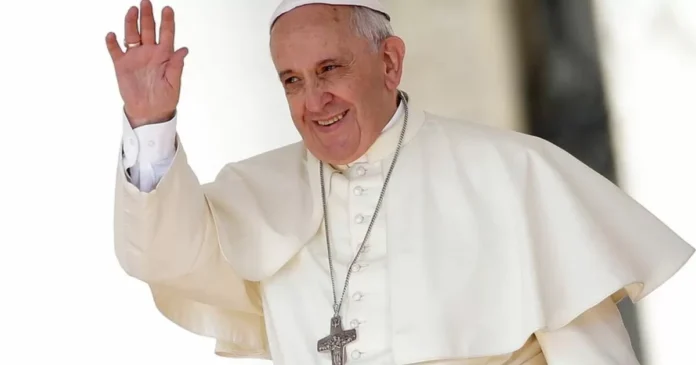Archbishop Carlo Maria Vigano recently addressed an intriguing question that has been on the minds of many Catholics: “To be or not to be Pope?” His words were originally published on exsurgedomine.it and have since been republished with permission. In this thought-provoking article, we explore the significance of his message and what it means for the Catholic Church.
The Archbishop begins by reflecting on past popes who have faced challenges and struggles during their pontificates. He mentions Pope Leo XIII, who faced immense pressure from secular powers but remained steadfast in defending the truth of the Church. He also recalls Pope Pius XII, who remained strong and courageous amidst the chaos and destruction of World War II.
With this in mind, Archbishop Vigano then poses the question, “What makes a true pope?” He answers that it is not the position or the title that makes a pope, but rather a sincere love and fidelity to Christ and His Church. A true pope, according to the Archbishop, is one who is guided by the Holy Spirit and upholds the teachings and traditions of the Church.
However, in today’s society, there seems to be a growing confusion about what it means to be a pope. The Archbishop speaks of those who promote a “new church,” one that is detached from the teachings and traditions of the past. He denounces this approach, stating that “there can be no new Church, but only one Church that is One, Holy, Catholic, and Apostolic.”
Furthermore, he addresses the problem of those who claim to be Catholic but deny essential dogmas and moral principles of the faith. The Archbishop boldly declares that “you cannot be Catholic and deny Catholic doctrine.” He warns against those who use the name of the Church for their own agendas and urges the faithful to stay true to the true teachings of the Church.
But what about the pope? Can he fall into error or even heresy? Archbishop Vigano answers this question by referring to the famous words of St. Paul, “Even if we or an angel from heaven should preach a gospel other than the one we preached to you, let them be under God’s curse!” (Galatians 1:8). This statement is a powerful reminder that even the highest authority in the Church is not infallible and can be led astray.
The Archbishop then highlights the importance of papal infallibility. It is a safeguard for the Church, ensuring that the Pope does not lead the faithful astray in matters of faith and morals. However, he emphasizes that papal infallibility does not mean the Pope is exempt from criticism or correction. If a pope goes against the teachings of the Church, he can and must be corrected by his fellow bishops and the faithful.
Bringing his argument to a climax, Archbishop Vigano proposes a thought-provoking scenario. He asks, “What if a pope openly and blatantly rejected Catholic doctrine?” He answers that in such a case, the pope would “not only fail in his duty, but he would also be disqualified from being pope.” This statement is a reminder that a pope should not be judged solely by his title or position but by his actions and adherence to the teachings of the Church.
In conclusion, Archbishop Vigano’s message is a call to all Catholics to remain rooted in the truth of the Church. It is a reminder that the Church is not something to be molded or changed to fit our modern society, but rather it is a timeless institution guided by the Holy Spirit. The Archbishop’s words also serve as a challenge to all those in positions of authority, including the pope, to remain faithful to the teachings of the Church and not fall into error or heresy.
As we reflect on Archbishop Vigano’s message, let us remember that being a pope is not about power or prestige, but about serving the Church and proclaiming the truth of the Gospel. Let us pray for our current and future popes, that they may always be guided by the Holy Spirit and lead the Church in a manner faithful to the teachings of Christ.


